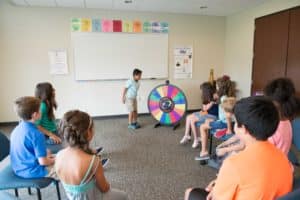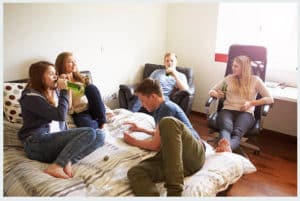Alcoholism and drug addiction in families are hard on children, especially over a long, hot summer. For children ages 7-12, Kids Camp at The Council offers a chance for kids to express feelings, gain support, and learn about recovery.
Kids Camp at The Council is three days of prevention, support, and recovery for children who love someone who drinks too much, abuses drugs, or may have done so in the past. Through art, games, role-play, and meaningful activities, kids learn to  identify and express feelings, develop self-care skills, and deepen communication with their family. Above all, kids learn they are not alone and that other children and families have similar experiences.
identify and express feelings, develop self-care skills, and deepen communication with their family. Above all, kids learn they are not alone and that other children and families have similar experiences.
Parents, caregivers, and teen siblings join the children for portions of the program, including family education and support. All services are provided in a safe and confidential setting at The Council on Recovery’s campus.
Kids Camp at The Council helps parents and children open lines of communication and heal the hurt in their relationships. By learning about addiction in an age-appropriate way, kids gain valuable insight and understanding. The entire family learns new skills and is given the tools to recover.
It takes great courage to address the struggles and obstacles your family may be experiencing. Now is the time to show your children that family can prevail, healing is possible, and there is hope for a brighter tomorrow.
Three Kids Camps are scheduled for this Summer 2017 (space is limited, so apply early):
- June 22-24, 2017
- July 13-15, 2017
- August 10-12, 2017
To learn more, read the Kids Camp Brochure, call 281.200.9299 or message us at children@councilonrecovery.org

 Whether or not parents and educators want to admit it, underage drinking is rampant. Although the statistics are disturbing, it is imperative for parents to educate themselves on this pressing matter. Often, parents look toward outward signs such as grades, extracurricular activities, and other factors as reassurance their children are not partaking in alcohol in their free time. Yet recent facts show otherwise:
Whether or not parents and educators want to admit it, underage drinking is rampant. Although the statistics are disturbing, it is imperative for parents to educate themselves on this pressing matter. Often, parents look toward outward signs such as grades, extracurricular activities, and other factors as reassurance their children are not partaking in alcohol in their free time. Yet recent facts show otherwise: